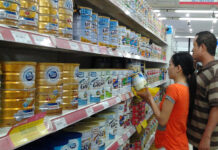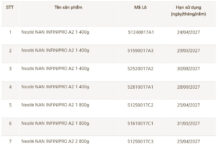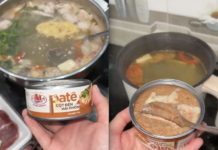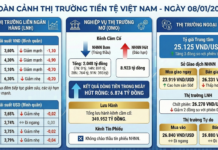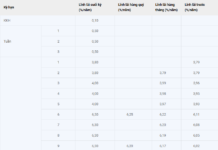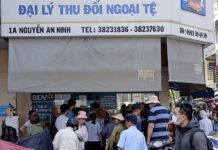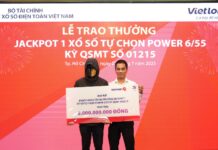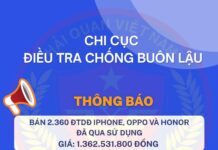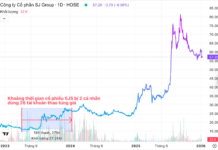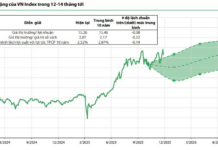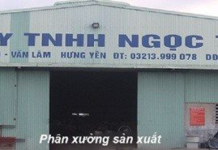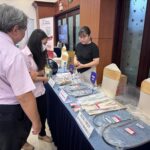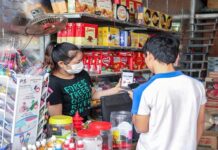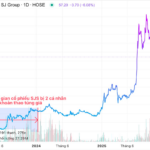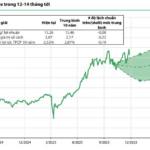The new Decree 70/2025 and Circular 32/2025/TT-BTC, which mandate that households and individuals with annual revenue of 1 trillion VND or more in catering, accommodation, supermarkets, and retail must use electronic invoices from cash registers, have been in effect for over two months. However, Ms. N.T.T., the owner of a small restaurant in Ho Chi Minh City, is still struggling with revenue accounting and cost reconciliation.
According to Ms. T., previously, everything was simply recorded in a book and calculated on paper, but now invoices and vouchers are required.
“Now, not only meat, fish, and vegetables need invoices, but even ginger roots, citrus fruits, bottles of fish sauce, or packets of seasoning need invoices or input documents. Meanwhile, buying all the ingredients from a supermarket is much more expensive than from a wholesale or retail market. The problem is that market vendors do not issue invoices. Last month, I had to buy from places with invoices, but the cost increased significantly,” Ms. T. complained.
It’s not just the input stage that is problematic; recording and declaration are also causing Ms. T. more and more pressure. “I sell goods all day, and at night I have to pore over the books. I can’t manage it all, so I have to hire a tax declaration service, which costs an additional monthly fee just to ensure compliance with regulations,” she said.
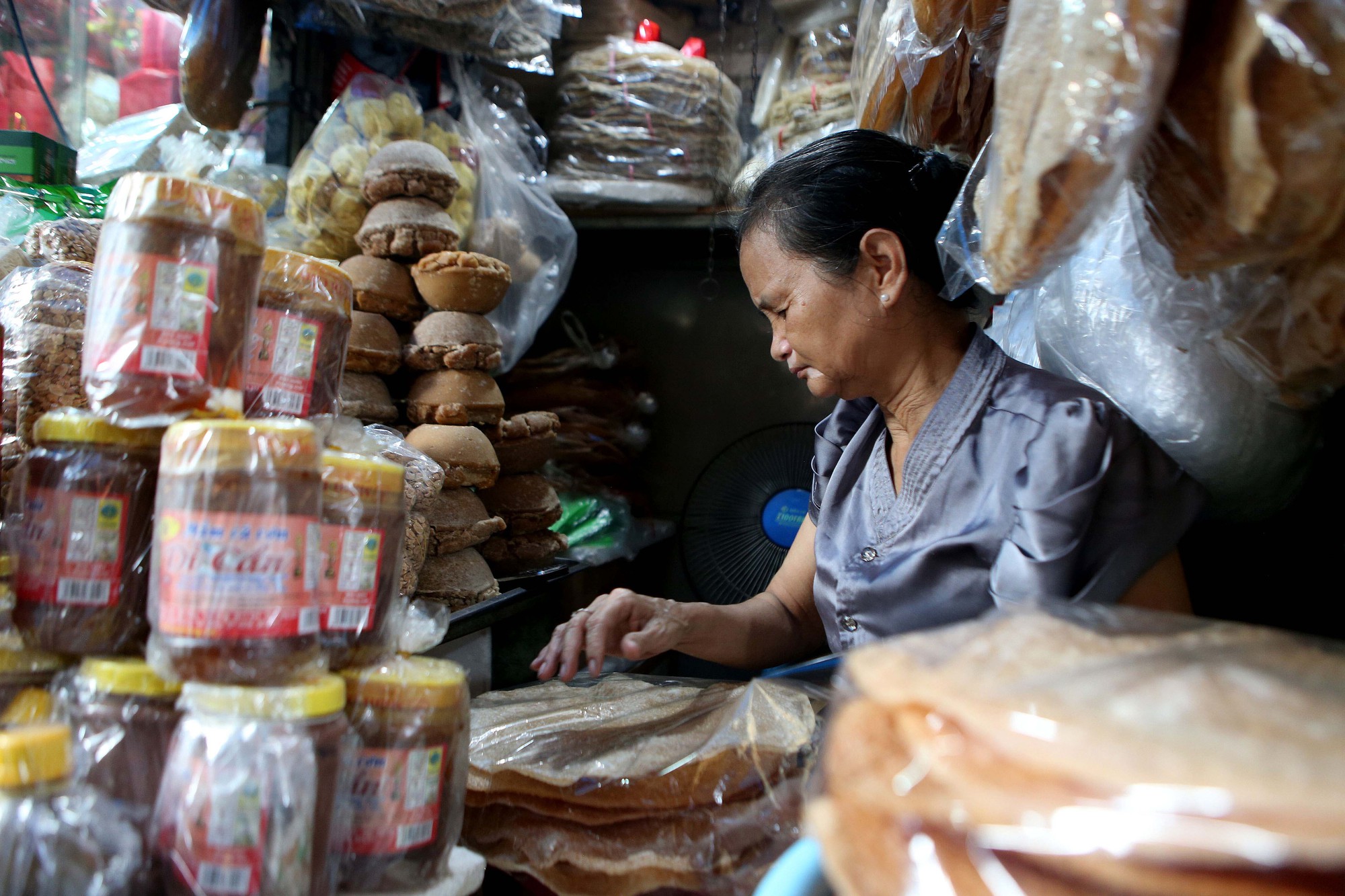
Many businesses are still struggling with revenue declaration and electronic invoicing requirements. Photo: HOANG TRIEU
Ms. T.’s situation is not unique. Ms. T.T.B., the owner of a large grocery store near Cho Binh Tay, is equally confused. “I’m used to selling goods and paying taxes on an annual basis for many years. Now, when I hear about revenue, cost, invoice, and voucher declarations, I feel confused and don’t know where to start,” Ms. B. expressed.
Many other business households stated that their biggest obstacle is the complexity of preparing invoices and vouchers for small and varied items, often sourced from multiple suppliers, especially traditional markets. They have also not received specific training and lack direct support from tax officials, so they worry about making mistakes and being penalized.
According to these households, the biggest pressure is not the higher taxes (as taxes are now calculated on actual revenue) but the sometimes complicated procedures that require knowledge of accounting and taxation, which most of them have never been trained in.
Providing accounting software support for business households
There are currently about 1.5 million tax-paying business households in the country. Many of these have large revenues but still pay taxes using the quota method. The Ministry of Finance believes that switching to declaration will bring transparency to revenue and expenses, ensuring fairness among business types. However, the implementation has revealed several shortcomings.
To address these issues, the Ministry of Finance is seeking feedback on a draft decree guiding the implementation of several articles of Resolution 198/2025/QH15 on mechanisms and policies to promote the development of the private economy. One of the new points is that the state will provide a free digital platform for micro, small, household, and individual businesses; integrate accounting software that can connect with electronic invoice software from cash registers, along with digital signature services; and provide free training in business administration, accounting, taxation, and human resources.
According to experts, the requirement for transparent revenue and expense declarations is an inevitable trend to ensure tax fairness, reduce budget leakage, and create a healthy competitive environment. However, it is important to have a suitable roadmap and strong support to help these businesses adapt.
“To be effective, the new regulations need to reduce procedural burdens, enhance management capabilities for business households and small businesses, and facilitate their expansion or transformation into enterprises when they meet the requirements,” commented an expert.
A widely agreed-upon solution is to provide free software for recording income and expenses, with automatic tax calculations, along with reduced requirements for small and miscellaneous expenses, simplified declaration procedures, and increased online support. “If passed, the new decree will resolve some of the difficulties, especially regarding small and miscellaneous vouchers. It is necessary to organize training courses and provide direct guidance at the local level, as many business households are not familiar with technology, and online guidance alone is insufficient,” the expert added.
According to Dr. Huynh Thanh Dien from Nguyen Tat Thanh University, the state’s investment in free accounting software for business households and small businesses is an important step forward. Currently, all individuals and business organizations must declare taxes, contributing to transparency and the fight against counterfeit and imitation goods.
Dr. Dien suggested that there should be a roadmap to completely abolish the quota tax method, as continuing to maintain it will cause a portion of business households to hide their revenue, leading to negative consequences and difficulty in controlling product quality. He proposed: “The Ministry of Finance should issue simpler declaration regulations for enterprises, design software with ready-made templates that are easy to use, and only require inputting information about purchases, sales, and revenue. The system will then automatically calculate the tax.”
Dr. Dien emphasized that to reassure business households and ensure compliance, there should be a separate, simpler accounting regime accompanied by user-friendly software. This would reduce procedural burdens for businesses while ensuring budget revenue and effectively combating counterfeit and imitation goods.
Clear Distinction Between Enterprises and Business Households
Attorney Tran Xoa from Minh Dang Quang Law Firm stated that to bring tax declaration transparency into practice, a clear distinction must be made between enterprises and business households. In reality, many business households have revenues far exceeding those of enterprises, but they are used to operating freely, so they will face confusion when the new regulations are applied. “I have communicated with over 1,000 business households, and some have monthly revenues of tens of billions of VND but have no idea how to declare taxes. To gain their cooperation, we must be gentle, patient, and methodical,” he said.
According to Mr. Xoa, to truly bring business households into a disciplined framework, providing accounting software must be accompanied by specific guidance and hands-on training throughout the adaptation process. This requires the coordinated efforts of the local tax agency, the People’s Committee at the ward/commune level, tax agents, accounting firms, and local organizations and groups.
Mr. Xoa emphasized: “People are already familiar with smartphones, so training and guidance on invoice creation and bookkeeping will be much more accessible. With proper invoices, the tax agency can collect the correct and full amount of taxes and prevent budget leakage.”
The lawyer suggested that this should be implemented as a large-scale campaign lasting about three months, with unified leadership and the participation of multiple forces. This would not only disseminate skills but also create a mindset of readiness among business households as they enter a new phase of management.
Digital Transformation: Empowering Small Businesses for the New Normal
As of July 2025, Decree 70 mandates that business households adopt electronic invoicing and tax management in line with new standards. This levels the playing field, as digitalization is no longer exclusive to large enterprises but becomes the operational norm for all businesses.
Counterfeit Goods Masquerade as Legitimate Businesses: A Multi-Billion Dollar Industry
“The production and trade of counterfeit goods are rampant and operate on an industrial scale, according to Colonel Nguyen Minh Tuan. The illicit industry is worth billions of dong.”
Raid Uncovers Counterfeit Goods Operation: Authorities Seize Smuggled Drugs and Cosmetics in a Bust Worth Over $1 Million
The authorities have seized a significant haul of prohibited, expired, and unregistered goods, with a total value of VND 25.6 billion. This proactive operation has prevented potentially harmful products from reaching consumers and underscores the authorities’ commitment to public safety and regulatory compliance.



